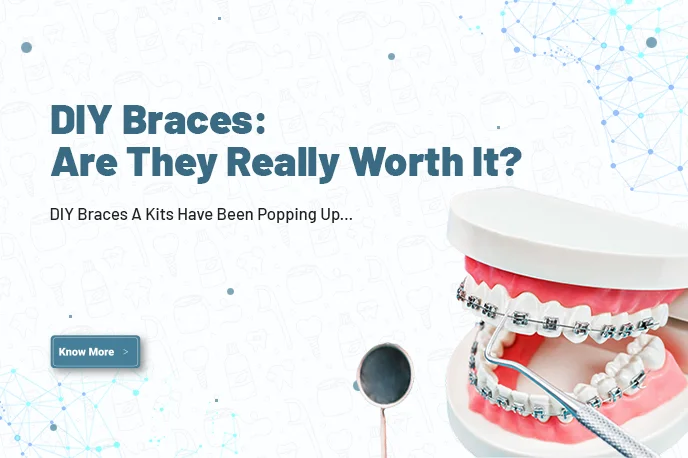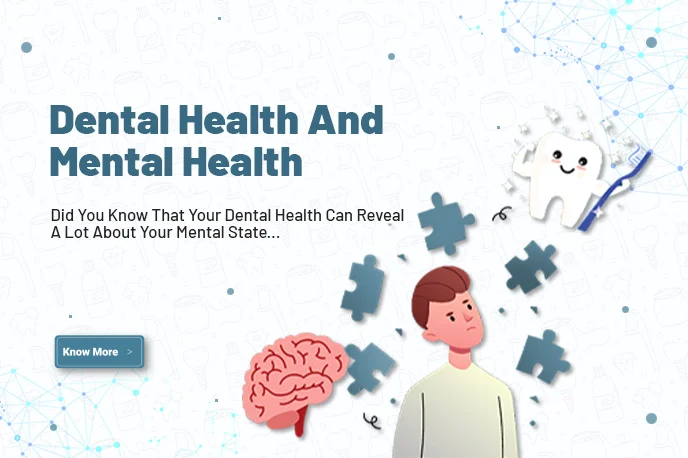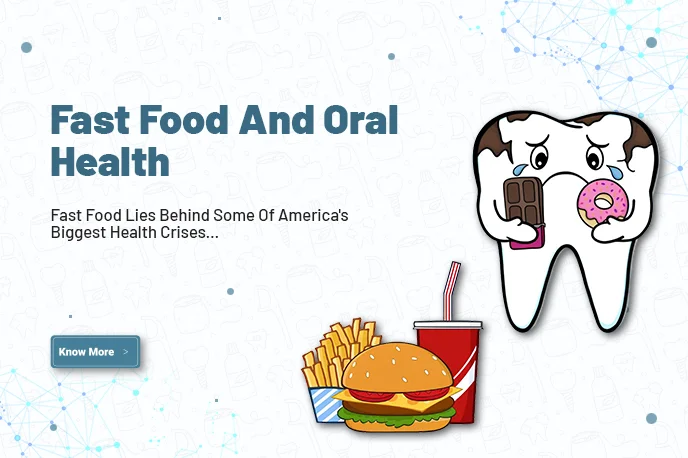Millions of people wear braces, from traditional metal braces to clear retainers like Invisible braces that offer a safe solution to closing gaps, preventing crowding, and giving their teeth a symmetrical shape.
For some, DIY braces kits may be a tempting solution to spacing, gaps, and other issues, but are they really safe and effective? There are many reasons to avoid DIY braces kits as an alternative to braces applied by a licensed orthodontist.
Choosing the cheap and easy option of do-it-yourself (DIY) braces can cause severe damage to your teeth and gums.
Are DIY Braces Safe To Use
DIY braces may seem like a quick, easy, and less costly approach to closing the gaps between the teeth. Unfortunately, the DIY treatment can result in long-term oral issues that require complex and costly fixes.
Oral braces kits are available as an affordable alternative to braces. They can be more cost-effective, but you may end up investing more in the long term.
Although DIY braces are quick and easy at-home fixes, they have the potential to damage your metal braces, which can ruin your oral health.
Professional orthodontists receive years of professional training and are specialists in straightening and aligning the teeth and bite.
They also offer a thorough examination to provide the proper treatments needed for the patient.
Moving teeth without examining the health of teeth and gums could cause permanent loss of teeth, which can result in expensive and lifelong dental issues.
Drawbacks Of Using DIY Braces
Although oral braces can be a convenient option for you, there are certain severe risks that come with this approach. Here are some common drawbacks of using oral braces and why you should avoid them.
-
Risk Of Severe Infection
Unfortunately, DIY braces don’t include clinical examinations or X-rays to determine any existing dental or oral problems before treatment.
Moving teeth in the presence of underlying teeth or gum disease can worsen these diseases, leading to possible tooth loss.
Whereas specialist orthodontists are experts in recognizing these underlying issues and addressing them before moving the teeth.
-
Teeth And Jaw Damage
Straight teeth can cause problems if the teeth bite is not comfortable. Incorrect bites can lead to teeth breaking/chipping, wearing of tooth enamel, and jaw pain.
DIY braces kits only address the straightening of teeth, and they do not change or improve a patient’s bite.
In contrast, orthodontists can easily identify and treat both teeth alignment and bite issues that can cause discomfort and pain.
-
Costly And Time Taking Process
Orthodontists are left to fix the damage caused by DIY treatments, which can cost patients large amounts of money and can take years to fix the issues.
Repairing the damage caused by wearing oral braces through dentists’ At-home DIY procedures can be more expensive than investing in the right specialist orthodontic braces from the start.
Is It Easy To Do Teeth Whitening With Braces
While using braces, plaque and debris from the food can get easily snagged in the brackets and wires of the braces, which can damage or stain your teeth and gums.
If you want to effectively whiten your teeth to improve your smile. Orthodontists recommend delaying the process and waiting until their braces are removed.
Because bleaching agents used during extensive whitening can inevitably weaken the attachment of the braces on your teeth.
And even if you clean your teeth while wearing braces, your teeth will become mismatched when you remove the braces. So, it is best to whiten your teeth when your braces are removed to have a perfect and brighter smile.
How To Perfectly Straighten Your Smile
Contact a dentist or an orthodontist, they can recommend the solution to help you achieve an aesthetic and a healthy smile. There are a variety of braces to help you customize your look while correcting any tooth or jaw alignment issues.
-
Traditional Braces
Traditional braces are also as affordable as DIY brace kits, but they are more efficient than them.
It includes metal brackets and wires that place the teeth in the right position. You can choose your favorite colors to customize your brackets.
-
Designer Braces
It can add accents to your appearance by having various special shapes like hearts and stars, and they also have sports-themed designs.
They are still an effective and safe solution that can help you achieve the exact look that you want to achieve.
-
Ceramic Braces
These ceramic braces are almost invisible in look and have teeth-like shapes that blend with your teeth seamlessly.
Reasons Why You Should Consult An Orthodontist
While having any dental problems, it’s crucial to get the right advice from a dental professional to get the right treatment according to your oral conditions.
Orthodontists are dental experts who are professionals in addressing the problem and identifying which treatment options will be best for you, leading to the best outcome and, ultimately, the best smile.
Teeth are best when left to the professionals as you only have one set that you need to last a lifetime.
Key Takeaways
(DIY) oral braces may seem tempting and cost-saving, but the risks of using a DIY braces kit outweigh the potential benefits. No matter how convenient it seems in terms of money, the serious consequences will be a far greater cost to oral health.
When it comes to achieving a perfect, healthy, and beautiful smile, professional care is not just recommended by dentists; it’s essential for your overall oral health.
Get The Smile You’ve Always Dreamed Of
Everyone knows that maintaining your dental health will keep your gums healthy and reduce bad breath and tooth decay. But did you know that your dental health can reveal a lot about your mental state? It has become more apparent today that there is a very strong connection between dental health and mental well-being.
We all understand that maintaining healthy teeth will maintain healthy gums and reduce bad breath and tooth decay. But do you know that your oral health can reveal a lot about your mental health? It has been more evident today that dental health and mental health go hand in hand. Bad oral health is reported to be a cause of depression, anxiety, and loss of cognitive function, and mental health problems can also negatively impact oral hygiene. It is essential to realize this connection to maintain both a healthy mind and mouth.
The Psychological Impact of Dental Health
Dental issues do more than restrict your ability to eat and communicate—they can actually impact your self-esteem and self-worth. In 2022, a study in the Journal of Affective Disorders discovered that patients with tooth loss and gum disease experienced higher levels of depression and anxiety. The problem is that visible dental issues are embarrassing, socially disabling, and of poor quality of life.
Apart from social problems, toothache is also a basic mental health problem. Repeated toothache or gum infection can even result in insomnia, irritability, and elevated stress levels. The British Dental Journal quoted the fact that patients of chronic dental pain will certainly develop depression due to continuity of stress and pain.
Can Dental Health Affect Mental Health?
The relationship of oral and mental health is two-way. Poor oral health can aggravate mental disorders, and depression, anxiety, and other mental disorders may cause a person to neglect their oral health.
A National Institute of Dental and Craniofacial Research study indicated that patients who had mental disorders had more symptoms of dental caries, periodontal diseases, and loss of teeth caused by neglect, as well as poor oral health behaviors. Depression may lead to fatigue and indolence and result in missed dental appointments as well as in poor brushing and flossing habits. Bruxism, which results in excessive tooth and jaw wear as well as in jaw pain, is caused by anxiety.
Furthermore, the biological connection between oral and mental well-being is inflammation. Chronic gum infection, or periodontitis, has been linked with higher rates of systemic inflammation, which have in turn been linked with mood disorders. In research released in Frontiers in Immunology, periodontitis-induced inflammation has been identified as potentially being behind neurological changes and hence an increased risk of depression and anxiety.
Depression and Dental Health: A Two-Way Connection
Depression strongly affects dental hygiene practice but not the other way around, and bad dental health can lead to exacerbation of depression symptoms. In a 2021 study for BMC Psychiatry, depressive patients were over twice as likely to have gum disease or uncured cavities as non-depressive patients.
The discomfort and pain of oral issues can cause mental distress, and in a cycle, poor mental health dissuades one from getting dental treatment. Also, antidepressant medication such as selective serotonin reuptake inhibitors (SSRIs) have one of their side effects being dry mouth, which can bring about more cavities and gum disease.
Can a Tooth Infection Affect Your Mental Health?
Untreated dental infections will lead to systemic effects beyond the tooth. An ongoing cavity infection of the tooth will leak into the circulatory system and cause systemic inflammation and impair brain function.
A research in The Journal of Clinical Psychiatry proved that chronic oral infections were more likely to cause cognitive impairment and neuropsychiatric disorders, i.e., mood disorders, in human beings. A bacterial infection of the tooth can potentially travel through the blood stream and cause inflammation responsible for generating brain effects and highly likely result in the severity of depression and anxiety.
Other than that, an untreated dental abscess can lead to brain infections, which can lead to confusion, loss of memory, and, in the extreme, life-threatening conditions such as sepsis. Therefore, dental infections must be treated at an early stage for physical and mental health.
My Teeth Are Affecting My Mental Health – What Can I Do?
If you find that the health of your mouth is impacting your mood, there are a few things that you can do in an attempt to break the cycle:
- Prioritize Oral Hygiene: Brushing, flossing, and dental check-ups should be done regularly. If you are afraid of dental check-ups, talk to your dentist using sedation.
- Seek Psychological Help: If your self-esteem has been damaged by dental issues or led to depression, you can be helped by counseling or therapy. Cognitive-behavioral therapy (CBT) is most helpful in conquering dental fear.
- Decrease Stress and Anxiety: Exercise, mindfulness, and breathing diaphragmatically can decrease stress and therefore decrease oral disorders such as bruxism.
- Eat a Balanced Diet and Drink Adequate Fluids: Healthy foods and enough fluids will avoid mouth issues and even improve overall health. Steer clear of excessive sugar and acidic foods to save teeth.
- Treat Infections at Once: If you are sure you have an oral infection, you need to be treated right away to avoid complications on your mental state.
The Bottom Line
The connection between oral and mental health is undeniable. Poor oral hygiene can lead to increased anxiety, depression, and mental issues, while mental disorders can result in the lack of oral care. Healthy dental habits along with the treatment of mental as well as oral health can improve an individual’s well-being. If you are struggling with dental issues affecting your mind, you must visit a dentist as well as a mental health expert to gain control over your life and health.
References-
- PubMed Central February 7, 2022 Association Between Mental Health and Oral Health Status
- American Psychiatrist September 19, 2023 How Dental Health and Mental Health Are Connected
Do you have any idea how sugar and carbohydrates present in fast foods can affect your oral health? The reason is that processed fast food increases the bacteria and the acidity of the mouth.
Consuming fast food regularly can contribute to overall poor nutrition, which may weaken your teeth and increase your risk of gum disease. Acids can break down tooth enamel, and sugar encourages bacteria to cause cavities, tooth decay, and loss of teeth.
Oral diseases that can be easily prevented in early stages affect many people throughout their lifetime, causing pain and discomfort.
A new guideline of the World Health Organization (WHO) recommended that adults and children should limit their daily sugar intake to up to 10% of their total diet.
Top 5 Worst Foods For Oral Health
Here are the four worst foods for oral health that lead to cavities and gum disease.
Sugary Food And Drinks
Consuming sugary foods and drinks can harm your oral health, as they serve as a fuel for bacteria that produce acids, leading to cavities and tooth decay.
One tablespoon of ketchup contains at least 4 grams of free sugar, whereas a single can of soft drink or sugar-sweetened drink contains up to 40 grams of sugar that can ruin your overall oral health.
Consuming sugar-rich foods can negatively impact your quality of life, leading to pain and discomfort, particularly during eating and sleeping.
Carbonated Soft Drinks
Having excessive soft drinks is one of the major risks for oral health problems. Soft drinks, sodas, and energy drinks contain 50 – 60 grams of sugar that can severely harm your tooth enamel.
Carbonate soft drinks, high in sugar and acid, increase the risk of tooth loss and exacerbate oral health conditions.
Acidic Food And Drinks
Acidic foods and drinks found in fast food are a major cause of tooth erosion, which can severely damage the tooth surface, leading to sensitivity to hot and cold.
Certain fruits, like lemons, oranges, and grapefruits, are rich in acids that can cause sore mouths and erode tooth enamel.
Added Sugars and Salts: The high levels of added sugar and salt in fast food can cause food particles to cling to teeth, making it harder to clean them effectively, promoting decay and gum problems.
Excessive sugar promotes plaque buildup, which can inflame gums and lead to Gingivitis and periodontitis.
Sticky And Starchy Foods
Starchy foods, such as bread, pasta, cereals, oats, rice, potatoes, and bananas, can serve as fuel for bacteria that contribute to serious gum disease. These foods stick to teeth for a longer period, providing a continuous source of sugar for bacteria to feed on, which increases the risk of cavities and tooth decay.
The food particles can get trapped in between teeth, creating a breeding ground and continuous source for bacteria, leading to plaque buildup.
How Fast Food Affects Your Dental Health
People often find it convenient to grab fast food instead of preparing a healthier meal that benefits their overall well-being. The reason why fast foods are considered bad for oral health is that they are highly processed, rich in carbohydrates and acids, and also contain added salt and sugar.
Eating fast food not only affects your physical health but also causes serious health issues like Obesity and diabetes. It also impacts your oral health, increasing the risk of cavities, tooth decay, and serious gum disease, such as Gingivitis and Periodontitis.
While grabbing a cheeseburger, most people often go for a soft drink, and the sugar found in it can break down the tooth enamel, increasing the risk of decay.
Nutrient-Rich Foods For Oral Health
Here are some nutrient-rich foods that prevent oral problems and support oral health.
-
Dairy Products
Cheese is one of the best sources for strengthening teeth because it is low in sugar and high in calcium, which helps in maintaining bone density. It also contains casein, a protein particularly used for strengthening tooth enamel. Yogurt is rich in calcium and probiotics, essential for stronger teeth and bones, and prevents bad breath.
-
Leafy Vegetables
Some leafy vegetables like spinach, cabbage, and lettuce are good for your dental and overall oral health. These vegetables are rich in calcium, folic acid, vitamins, and minerals, which help strengthen tooth enamel.
-
Nuts And Seeds
Dry fruits are rich in fiber, antioxidants, and micronutrients such as potassium and calcium, which reduce plaque accumulation and support gum health. Chewing dried fruits increases saliva production, whereas cashews, almonds, and nuts also help fight against bacteria that cause tooth decay.
-
Fruits
If you want to have something sweet, fruits are the best option, as they are delicious and aid your overall health. Fruits that are rich in vitamins protect your teeth from bacterial infection. It increases saliva flow, cleanses the mouth, reduces plaque buildup, and supports gum health.
-
Fatty Fish
Including lean meats in your diet stimulates saliva production, which in turn prevents dry mouth. At the same time, salmon and tofu are filled with proteins and phosphorus that protect your tooth enamel.
-
Water
Water helps maintain hydration and saliva flow, while fluoride strengthens teeth enamel and prevents tooth decay. Drinking fluoridated water is the most effective way to support oral health.
Key Takeaways
Although fast food is bad for your oral health, having poor oral hygiene contributes to oral diseases. Avoid consuming excessive junk food and beverages, and drink enough water to help flush out the food particles.
Limit sugar-rich foods and drinks and opt for calcium-rich, nutritious food instead of fast foods that can harm oral health. Reducing both added sugar and salt is beneficial for oral and overall health.
A perfect smile is a powerful asset, conveying warmth and reflecting confidence. Here at Dacula Dental, we understand the importance of having a perfectly aligned smile, and we strive to ensure your oral health and well-being.
Please schedule an appointment with us today for a confident, brighter, and lasting smile. For further information, get in touch with our customer care team.
“Oral Hygiene: A Gift To Yourself”



